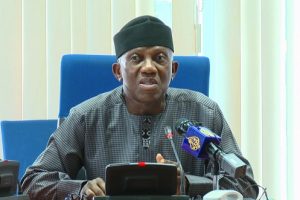BY MENGESHA AMARE
Any rivalry or antagonistic gesture exhibited between two bodies by no means isolated and get far apart must solely be bridged and help them come back to the normal status quo without the interference of a third party. Doing this enables to devise viable mechanism that can provide the two parties with a sustainable solutions to the problems.
What happened to Ethiopia and Sudan recently has to be adjudicated following this principle. Obviously, Ethiopian and Sudan have been enjoying a number of social, economic and political spheres and supporting each other since their existence as formal geographical states.
One has stood by the side of the other and vice versa at bad times and shared the fruits of peaceful and charming atmosphere since the people of the two countries have had a long entrenched socio-economic and cultural tie.
If truth be told, no two countries of the world are more intimate and closer than Ethiopia and Sudan as it is difficult to purely isolate which is an Ethiopian and which one is a Sudanese at the area bordered by the two countries. The two sisterly countries have had since long back well solidified ties to promote free trade and smooth people to people relations.
However, the relationship Ethiopia has established with its neighbors specially with the aforesaid sisterly country—Sudan—has been challenged by either border disputes or the trivial issues instigated by third interested party, which has assumed to benefit out of the dispute or antagonistic stance of the two countries.
The previous as well as current dynamics of Ethio-Sudan relation, conflict or cooperation over the shared territory needs to be critically assessed and their disagreement must be solved solely by themselves. As it is recurrently heralded, in due course of developing disputes and conflict between the two countries, there is an interference of a third party which is highly interested in destabilizing the Horn in general and getting the two amicable countries in sustainable unrest in particular. These bodies perhaps reap safeties at the expense of Ethiopians and Sudanese peace and tranquility.
The enabling practical lessons that Sudan has drawn from its neighbor and friend—Ethiopia—has recently been creating an opportunity for an improving Ethio-Sudan bilateral relations.
Hadn’t it been the interest of the third party to quench its hidden agendum, Sudan has never had an intension of confronting with Ethiopia, its historic ally, citing illegitimate and unacceptable border issues, which is clearly known and well identified where is the limit.
Unlike various forms of Ethio-Sudan diplomatic rifts over easily solvable border disputes, the cumulative effect of their negotiation without the interference of the third party indicates the recognition of cooperation in excess of conflict between the two neighboring countries. Surprisingly, they can get the border secured by discharging their respective responsibilities in all aspects.
Most importantly, consulting each other to work hard with a view to ensuring the security of the border shouldering own part couldn’t be erroneously interpreted and caused a dispute.
For example, Ambassador Dina Mufti, Ministry of Foreign Affairs Minister spokesperson recently said, “We told the Sudanese while we were capitalizing on the law enforcement operation in the northern part of our country stating, ‘Get your border closed as we have been engaged in the law enforcement operation. Since there might be insurgents who would like to hide themselves in your territory and try to make havoc as well as get us confronted.’
He further stated that they were told to make border stability and safety. However, they have erroneously interpreted and said the Ethiopian government has allowed us to surpass territory and stay there, which is an ill-intended and unacceptable approach, incited by third party of course.
In the era of globalization where United States of Africa is believed to be born to a number of African minds and the 2063 agenda has been at the forefront, spending too much time confronting on minor border issues is as trivial as a range of irrelevant and useless circumstances.
“The Ethio-Sudan border dispute can be resolved peacefully using negotiation and round table discussion without the interference of third party,” said Ambassador Dina.
He also cited that the gossip circulates about the engagement of Eritrea and Somali troops is a baseless allegation.
According to Ambassador Dina, Ethiopia is always expressing its willingness and desires to alleviate problems emanating from border disputes in a very amicable manner and a system full of civility.
He further said that earlier, a committee was set up and looked into a border issue. It must resume its activities and continue fostering peaceful agreement without third party engagement.
To do this, the Sudanese soldiers have to be back and take their place out of Ethiopia’s territory. He also said, “We appreciate all the countries which have tried to negotiate Ethiopia and Sudan, as their effort is worth mentioning.
However, the discussion or the negotiation will be held solely between the two concerned parties without the interference of their party because of two major reasons: one, the negotiation will come up with a sustainable solutions to the problems created so far between the two sisterly countries; two, all the quires and ideas raised during the discussion can be all appropriate and relevant to come up with lasting solutions in the absence of third party as the two countries have known each other their inside out.
If the two countries are close and talk about the issue, the negotiation will have a sustainable repercussion. Especially the people-to people relations, the long lasting, the historical tie of the two countries provided their respective people with fertile ground to share good and bad days.
Ambassador Dina further stated that Ethiopian senior officials had worked a lot to help Sudan when it was at stake. Even historically, the two countries have had longstanding and firm relations as they have long been sharing a number of socio-economic and even political aspects.
The issue of border, as a form of judicial abdication, has long been raised by the side of Sudan following the areas shared by both countries. Interestingly, the two countries do have a well identified and demarcated area that can never be the cause for confrontation unless the hidden agendum of other parties is run.
“The Ethiopian government is always willing and expresses determination to resolve the existing border dispute through a civilized manner, issues have to be tabled on discussion and peacefully resolved keeping the interest of both countries and helping their respective people breathe a sigh of relief,” said Ambassador Dina.
As learnt from Ambassador Dina, as it is a time of development reinvigoration, not a matter of confrontation, people of both countries have to move in unison to bring about change and development via resolving differences taking their validity and legality, or the expediency of governments acts involving highly political matters. It is inevitable to witness some sort of conflicts, as there are gaps in social interaction among people, but these conflicts could by no means be avenue to third party to trek in the center.
The two countries have to come up with lasting solutions to the problems getting all sources of confrontation dried and level leeway in which other countries which would like to snatch Horn peace and serenity in a bid to fatten their personal barn.
Had Ethiopia and Sudan had gut to come more closer and are able to bilaterally solve disputes such as border confrontation, others follow suit and East Africa in general will be a center of peace and stability.
Negotiation has long been called a dispute resolution mechanism that is highly worth appreciating. Hence, the two countries have to develop fraternity and jovial mode to help their respective people enjoy the fruits of development, free trade, coexistence and sustainable development.
The Ethiopian Herald January 23/2021



